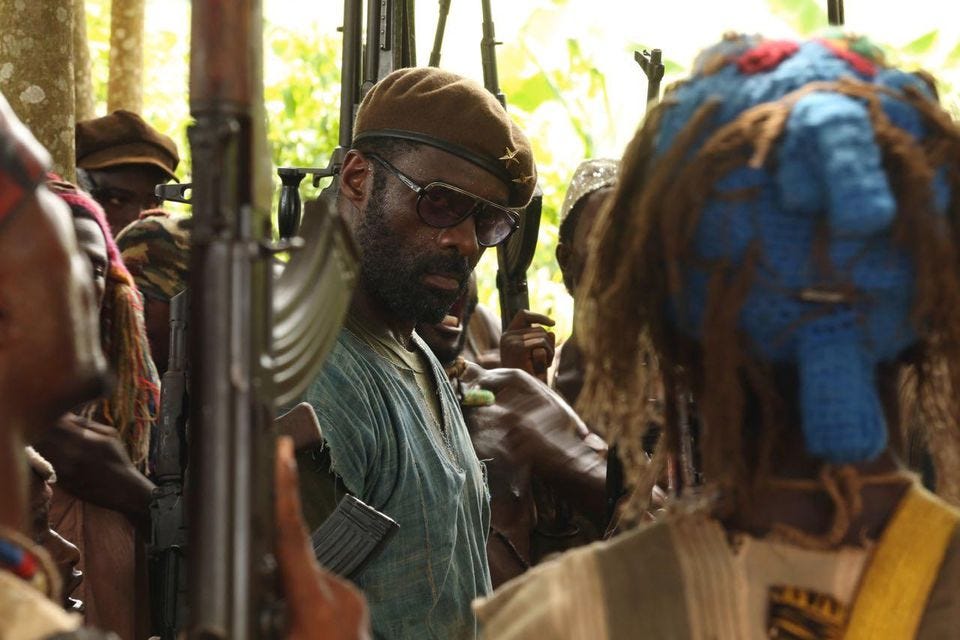
There have been many, many great war movies in cinema history. It’s a genre that never goes out of style. The best ones use the epic life-or-death drama of battle to tell personal stories that will resonate for ages. We have a couple of those for you today.
It’s not a mystery why some of our best filmmakers are drawn to the war movie, such as Francis Ford Coppola, Stanley Kubrick, Steven Spielberg, Kathryn Bigelow, and Christopher Nolan, just to name a few. It’s a chance to show off your skill with stunning combat sequences and layered storytelling. Some of them go for a raw depiction of violence and death, others go for a more meditative approach. War movies will never not be a thrilling arena to explore humanity.
Unsurprisingly, there’s several excellent war movies you can stream right now. We narrowed it down to four recommendations, but really it could’ve been at least ten.
Billy recommends…
Darkest Hour (streaming on HBO Now)
Biopics are always the source of controversy, Bohemian Rhapsody being the most prime and recent example that leads to an interesting debate amongst film fans. Do you create a movie that fudges the facts a bit to make a more conventional, uplifting biopic that furthers the fondness of that character? Or do you create a more realistic story that delves into the darkness that people worthy of a biopic have?
A good biopic needs conflict. Darkest Hour decides to create conflict by focusing on how Winston Churchill led his country through the battle of Dunkirk rather than delving into any deeply personal matters. By many accounts Churchill was a controversial figure early and throughout his career, with some racist tendencies and a controversial military background (mildly put). Darkest Hour mentions some of his controversial military past, but uses it to make Churchill seem like an underdog figure rather than a commentary on the person that he is. They portray him as this godlike figure and, surprisingly, I think it served the story well.
This one's a classic inspiring film. It gives you amazing speeches that get you to your feet, a wonderful (and completely unrealistic) scene where he takes a subway car and has conversations with civilians. At times while watching I wished for a more realistic story that creates a “better film,” but the decision to make this story a crowd-pleaser works. I truly hope the darker history of Churchill is explored in a future film, but the purpose of this movie was not that. It was to profile a man who despite a controversial history helped unite a nation through an incredibly scary time. Because of that, the choice to make him this perfect figure was smart and creates a solid film.
Schindler’s List (streaming on Netflix)
Steven Spielberg is such a strange director in that he doesn’t seem to have a style. Each one of his movies seems to have a distinct feel and aesthetic. The best example is from the year 1993. Steven Spielberg had two all-time classics released that year, Jurassic Park and Schindler’s List. Today we will be profiling Schindler’s List, which is a cinematic achievement.
Until this point Spielberg had a stigma attached to him as the “fun” director who has created masterpieces, but they were primarily blockbusters or “genre” films. Schindler’s List was his coming out party showing the world that he needs to be taken seriously. The Academy thought so as well by giving this film 7 Oscars.
We can put Schindler’s List in the category of “movies I only want to watch once.” This one is incredibly long and such a hard watch. Normally those are critiques of a movie, but in this case it is a compliment. We needed this one to be as long as it is and we needed the reality of the Holocaust to be portrayed as brutal on screen. We follow Oskar Schindler who is a powerful business man and is exactly what you would expect from a person like that. He’s cocky and purposely ignores the realities of the horrors around him.
This is the reason this story hits so hard and a beautiful example of the power of film. If the audience was just exposed to the horrors of the Holocaust it would almost seem as if we were glamorizing the violence. The violence has a purpose here though and it is to let us grasp on to a character. Once Oskar Schindler experiences the horrors around him we begin to see him change and begin to help. A beautiful portrait of redemption in the midst of events that do not seem redeemable. This is an essential viewing for all film fans and shows us that Spielberg is a true master.
Drew recommends…
The Hurt Locker (streaming on Netflix)
We tend to think of the war picture as loud, chaotic, and immersive, but sometimes the best ones are unnervingly quiet. The Hurt Locker, directed by Kathryn Bigelow, is unbearably suspenseful, and yet it possesses one of the softer volumes of any war movie you’ve seen. Part of that is due to the nature of the story, which concerns an Explosive Ordnance Disposal crew during the Iraq War, the brave soldiers that disarm bombs. But The Hurt Locker is also masterfully constructed by Bigelow. She paces her film perfectly, so that the tension ratchets up and then releases in due time, using the quiet moments to build Hitchcockian suspense.
Jeremy Renner stars as Staff Sgt. William James, who fearlessly puts his life on the line dismantling IEDs. Renner has never been better than he is here, although his work in The Town and Wind River come close. He acts composed on the outside, but Renner subtly lets slip the rage and recklessness that roils underneath Sgt. James’ still demeanor. Co-star Anthony Mackie, as Sgt. J.T. Sanborn, also proved he was an up-and-coming talent to keep an eye on. Together, Renner and Mackie display the camaraderie and discontent that exists between soldiers.
At the Oscars that year, Bigelow’s The Hurt Locker beat her ex-husband James Cameron’s Avatar for Best Picture (that had to feel good), and Bigelow became the first woman ever to win Best Director. Avatar made over $2.7 billion worldwide, while The Hurt Locker only pulled in less than $50 million, and yet this unflinching and gritty depiction of a modern soldier’s life had a visceral effect on audiences that they couldn’t shake. It remains the best Iraq War movie to date.
Beasts of No Nation (streaming on Netflix)
One of the more underrated recent war movies, Beasts of No Nation is an extremely harrowing and unsentimental look at the unsparing destruction that war brings. One of the many things being destroyed here is childlike innocence, as the story follows Agu, a West African boy that becomes a child soldier in a devastating civil war. Agu is recruited into a rebel group led by the ruthless yet charismatic Commandant (Idris Elba).
In what is my favorite Idris Elba movie performance (his Stringer Bell on The Wire is an all-time great TV character), he fully inhabits the Commandant, who is entirely monstrous. At the same time, you can see how a lost child like Agu (played splendidly by unknown actor Abraham Attah) would be attracted to a father figure like that. Elba brilliantly shows us this.
Writer-director Cary Fukunaga was coming off the triumph that was the first season of True Detective and he pulls off visionary work here in what may have been the first really good Netflix Original movie. Beasts of No Nation is marvelously shot, with fascinating backdrops and rich colors, while never forgetting the graphically violent reality of war. It’s not easy to watch children exploited into committing heinous acts or die for a cause they are much too young to comprehend, and Fukunaga makes sure he doesn’t skate over that fact. Next up for Fukunaga? Daniel Craig’s final Bond film, slated to arrive in 2020.
Beasts of No Nation is not a perfect film. It ends up as more of an unfocused examination of brutality than the moving depiction of humanity that it tries to be. However, war tales without a sentimental central story are important too. And Beasts of No Nation is absolutely worth a watch if you’re interested in movies undaunted in the face of cruelty and destruction.
Streaming TV Corner
The Office Episode of the Week
Billy: “The Sting” (S7 E5)

As we get towards the end of The Office we begin to see more and more great cameos. In the episode “The Sting” we see rival salesman Danny Cordray, played hilariously by Timothy Olyphant, interfere with Jim and Dwight who are trying to close a sale. At first they try to make him insecure and Dwight hilariously remarks, “So, anyway, she says ‘That is the biggest penis I’ve ever seen,’ and I said ‘I know! That’s why I brought you to the penis museum, where tickets are a thousand dollars!’” When that doesn’t work they try to make him obsolete by setting up a sting. This comic set piece thrusts many secondary characters into a starring role, particularly Meredith. She has one liners in past episodes that are hilarious, but this is her first chance to show her comedy chops and she nails it. The sting obviously fails and hilarity ensues. This is one of the more underrated episodes of The Office.
If you enjoyed this newsletter, please pass it along to a friend, share it on social, or shout it from the nearest mountaintop. We’d appreciate it.
If you’d like to read past newsletters, hit up our archive.


